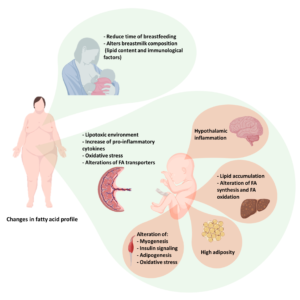
Introduction
Pregnancy is a journey filled with many milestones, and feeling your baby’s fetal movement for the first time is one of the most exciting. Understanding the stages of fetal movements, when they typically occur, and what influences them can help expectant mothers feel more connected to their baby and reassured about their progress.
When Do Fetal Movements Typically Start?
Before you start worrying about Decreased Fetal Movement, you need to understand that Fetal movements can vary significantly from one pregnancy to another. However, there are some general timelines that most expectant mothers can expect:
Earlier Movements: Some women might begin to feel movements as early as 16 weeks, but this is less common. Early movements are usually described as fluttering or “butterflies” in the stomach.
First-Time Mothers: If this is your first pregnancy, you may start to feel movements between 18 and 24 weeks. It can take longer to recognize these movements because they might be subtle and unfamiliar.
Experienced Mothers: If you’ve been pregnant before, you might notice movements a bit earlier, often between 16 and 22 weeks. Having felt these sensations in previous pregnancies, you’re likely more attuned to recognizing them.
Detailed Timeline of Baby Movements
16 to 20 Weeks: Some mothers, especially those who have been pregnant before, may start to feel fluttering movements. These early sensations are subtle and can be mistaken for gas or digestive movements.
20 to 24 Weeks: Movements become more noticeable and frequent. The baby is developing muscles and practicing a range of movements such as stretching, kicking, and turning. These movements can now often be felt by placing a hand on the abdomen.
24 to 28 Weeks: Movements become stronger and more defined. It is common to feel distinct kicks, rolls, and somersaults. At this stage, the baby is quite active, and their growing size and strength make their movements more pronounced.
28 Weeks and Beyond: Movements are usually well-established, and patterns of activity may start to emerge. Babies have periods of sleep and wakefulness, and mothers often notice more activity at certain times of the day, especially after meals or when lying down. Movements such as stretching, rolling, and even hiccups are common.
What Do the Movements Feel Like?
The sensations of fetal movement can vary. Early movements are often described as:
- Fluttering
- Butterflies
- Bubbles
- Gentle taps
As your baby grows, these movements will become stronger and more distinct, evolving into kicks, jabs, and rolls.
Factors Influencing When You Feel Movements
Position of the Placenta: If the placenta is located at the front of the uterus (anterior placenta), it may cushion the baby’s movements, making them harder to feel early on. Women with an anterior placenta may experience delayed perception of fetal movements.
Amount of Amniotic Fluid: More amniotic fluid can sometimes make it easier to feel movements, as the baby has more room to move around. Conversely, less fluid might make movements harder to detect.
Mother’s Sensitivity: Some women are more sensitive to internal sensations and may feel movements earlier. Body type and weight can also play a role, with slimmer women often feeling movements sooner than those with more body fat.
When to Expect Regular Movements
By the third trimester (around 28 weeks), regular movements should be noticeable. Mothers should feel the baby moving regularly every day. It’s important to pay attention to these movements, as a decrease in activity can be a sign of potential issues. If movements significantly decrease or stop, it is important to contact a healthcare provider.
Monitoring Baby’s Movements
Once you start feeling regular movements, keeping track of them can provide peace of mind. Many healthcare providers recommend counting kicks at the same time each day to ensure the baby is moving normally. Typically, you should feel at least 10 movements in a two-hour period.
What to Do If You Don’t Feel Movements
If you notice a decrease in your baby’s movements or don’t feel them at all by the time you reach 24 weeks, it’s important to consult your healthcare provider. They may perform an ultrasound or other tests to check on the baby’s well-being.
Reduced Movements Later in Pregnancy: Once you start feeling regular movements, you should continue to feel them consistently. If you notice a significant decrease in movement, it’s essential to contact your healthcare provider.
Differences Between First-Time and Subsequent Pregnancies
Women who have been pregnant before often feel fetal movements earlier than first-time mothers. This is partly because they are more familiar with the sensation and can distinguish baby movements from other bodily functions.
Common Myths About Baby Movements
There are many myths surrounding fetal movements. For example, some believe that a very active baby in the womb will be hyperactive after birth. However, there is no scientific evidence to support this. It’s important to rely on medical advice rather than myths or old wives’ tales.
Importance of Tracking Movements
Keeping a log of your baby’s movements can help you notice patterns and identify any changes. This can be crucial for early detection of potential problems. There are various apps and methods available to help you track movements effectively.
Summary
- First Movements Detected by Mother: Typically between 16-25 weeks.
- Stronger and More Regular Movements: Usually felt around 20-24 weeks.
- Consistent Movement Patterns: By 28 weeks, with noticeable daily activity.
You can also read pregnancy week by week here
If you have concerns about your baby’s movements at any stage of pregnancy, it’s always best to consult with your healthcare provider for reassurance and guidance. Regular monitoring and understanding of your baby’s movement patterns can provide valuable insight into their well-being.






